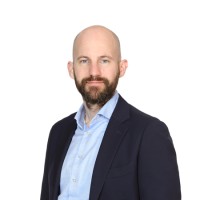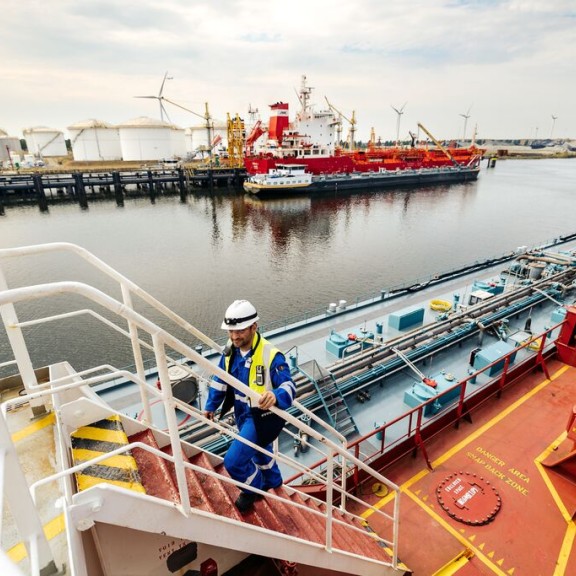
Liquid bulk
Amsterdam is the largest gasoline port in the world and a leading player in liquid bulk, such as petrol, diesel, kerosine, lpg, chemicals, biofuels, or hydrogen. Because of the central location in the Amsterdam-Rotterdam-Antwerp hub, your cargo is assured of good processing in Amsterdam. The kerosene supply that fuels Schiphol Airport runs through the port.
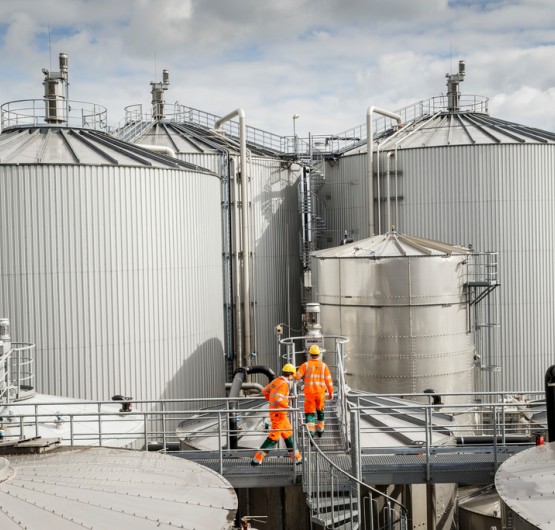
The transition to sustainable fuel
We aim to be a frontrunner in the energy transition. By 2028, our goal is to increase the transport of alternative fuels and energy carriers, such as biofuels and SAF, by 25% compared to 2024. We are working closely with our customers to develop and attract this green cargo. For example, together with companies like Evos, Sunoco, and other partners, we have established the H2A consortium to create a green hydrogen supply chain.
Furthermore, we are developing areas specifically for sustainable fuel production, in close proximity to tank storage terminals.
Liquid bulk in Amsterdam
Gasoline and diesel
As the largest gasoline port in the world, Amsterdam is a leading player in the oil market. The experienced Amsterdam terminals offer extensive facilities for the storage, transshipment, and blending of (bio)diesel. This makes Amsterdam a major international hub where gasoline and diesel are blended and traded.
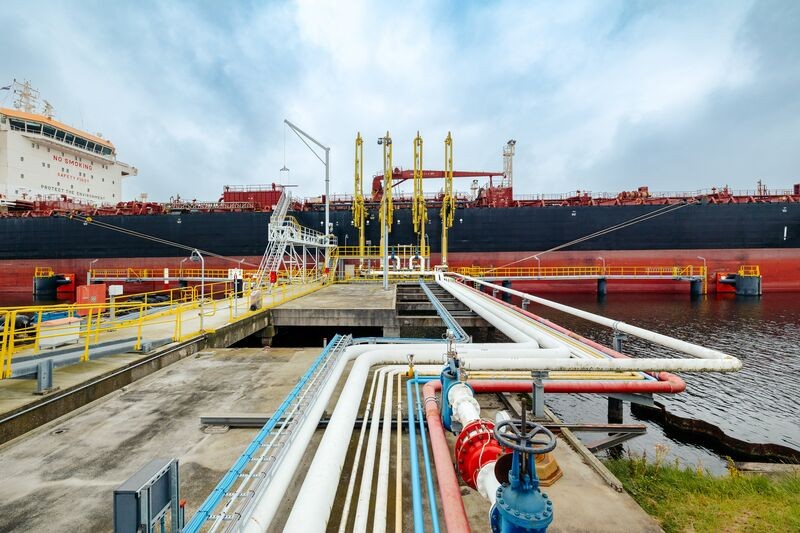
Biofuels
Due to extensive expertise and infrastructure for the storage and transshipment of transport fuels, the port is well-equipped to handle alternative, sustainable fuels such as biofuels. In the Port of Amsterdam, biodiesel, biogas, and bio-LNG are produced at various facilities. Existing tank storage companies offer biofuel customers a range of port services, including jetties, K0, K1, and K3 tanks, loading options for trucks and rail, and blending capabilities.
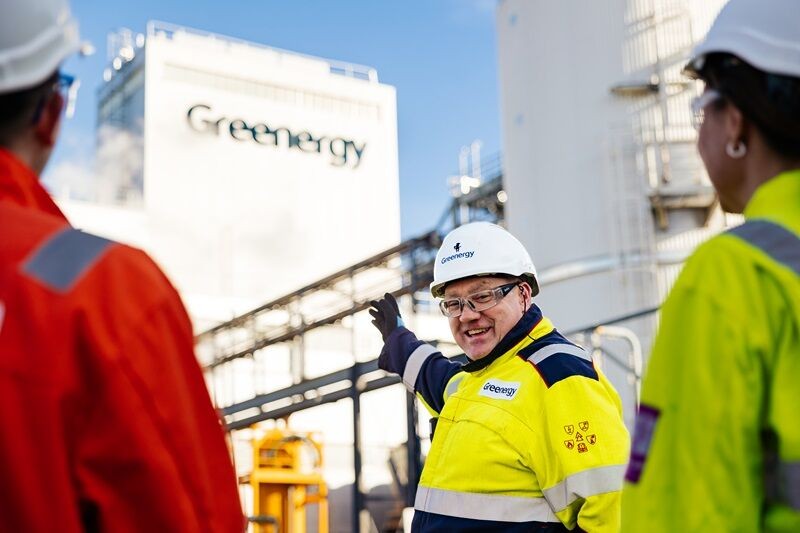
Kerosine
The Amsterdam port houses multiple facilities for the Amsterdam is a frontrunner in the distribution of SAF (Sustainable Aviation Fuel) to Schiphol Airport. Schiphol receives approximately half of its required kerosene through a 16-kilometer underground pipeline. This pipeline connects the airport to Evos Amsterdam. Among other factors, this makes Amsterdam a crucial player in the kerosene market, with all the necessary facilities in place.
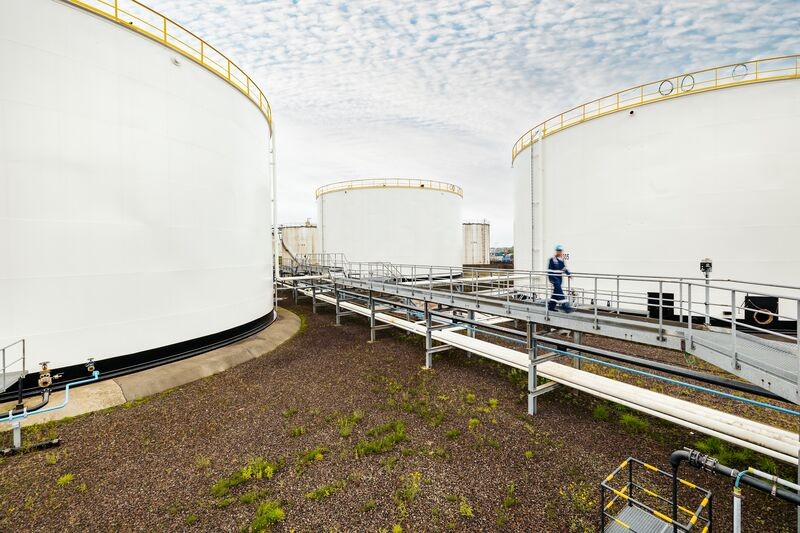
LPG
In the Amsterdam port region, butane is widely used in gasoline blending. The port offers all the facilities and expertise required for the shipping, storage, and transportation of LPG. Because of these facilities, the terminals are able to provide tailored solutions.
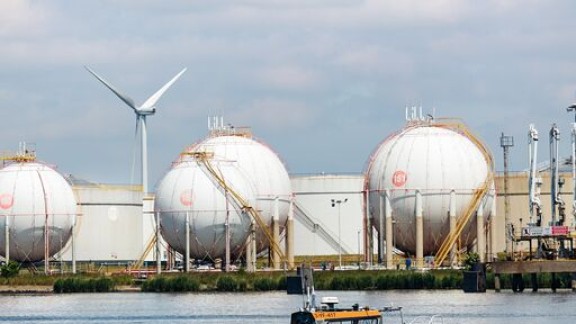
Chemicals
The Amsterdam port is the logical place for the (bio-based) chemical industry. Multiple chemical and energy companies, biofuel producers, chemical factories, and power plants are established here. Because of this, it is possible to create (sustainable) business clusters. We collaborate closely with Innovation Lab Chemistry Amsterdam. Also, we realise connections between the port, the chemical industry, science, and spin-offs and start-ups.
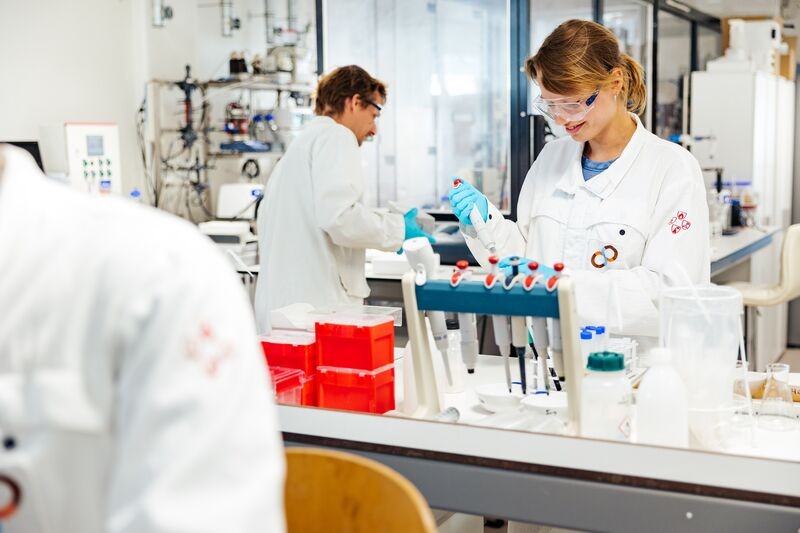
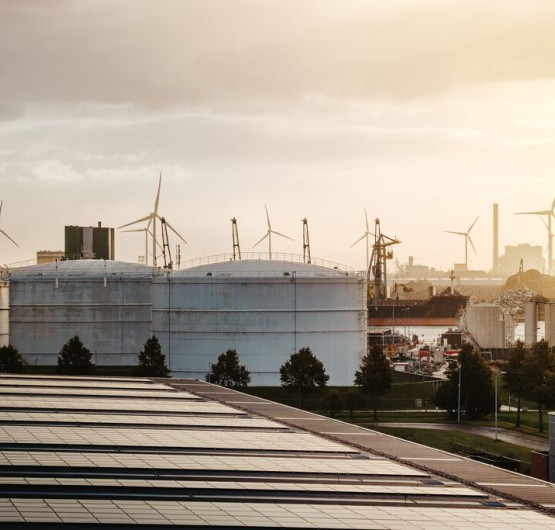
Hydrogen
atural gas in industrial processes, as a transport fuel, as a sustainable industrial material, and as a battery substitute. We are focused on the import, production, and use of hydrogen in the Amsterdam port. In collaboration with our partners, we are working on an infrastructure to provide hydrogen to the entire area.
What's new?

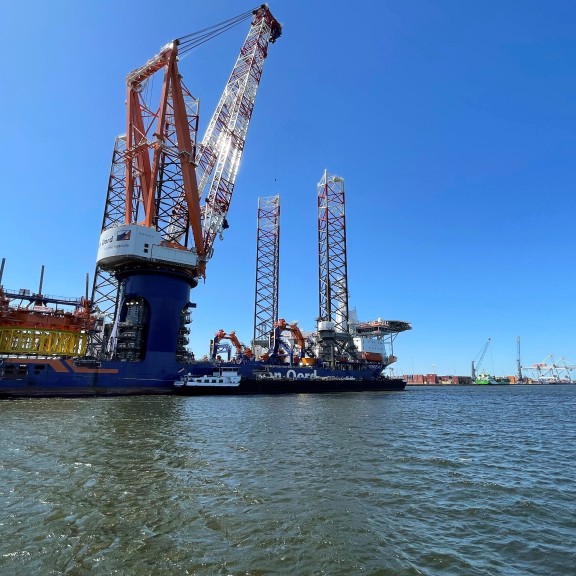
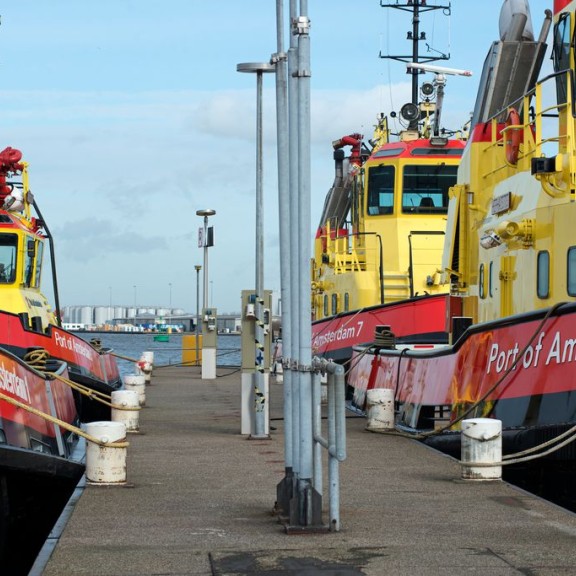
Contact our experts
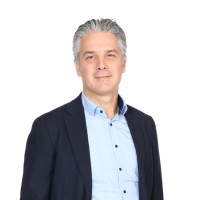
Didier de Beaumont

Joey van Elswijk
